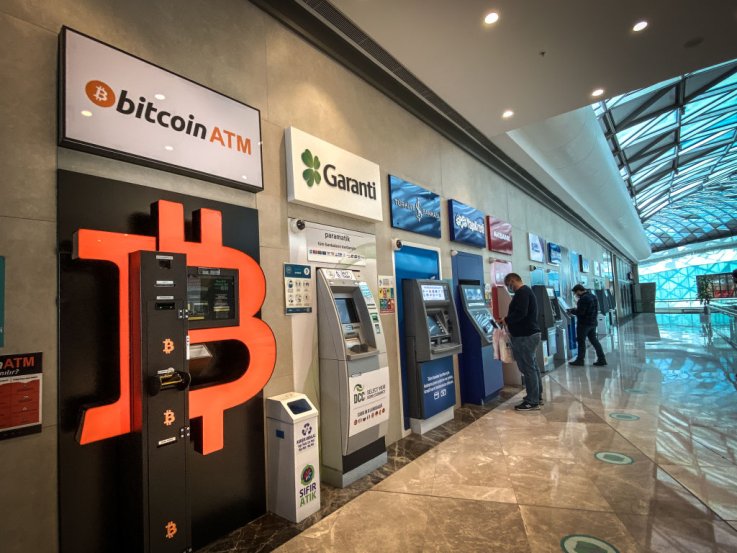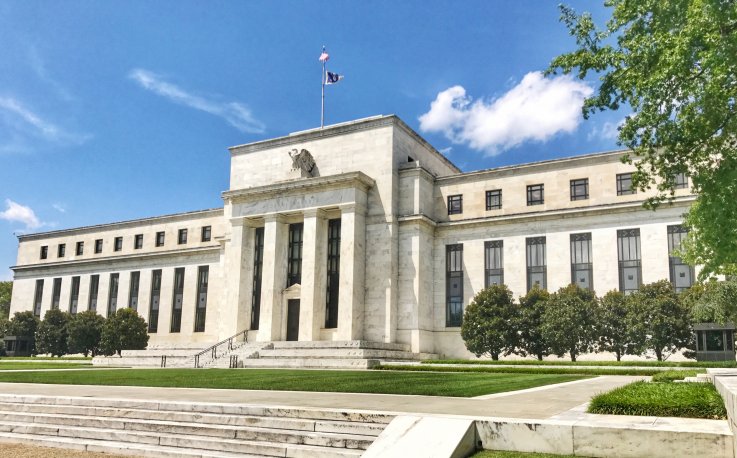World Bank Denies El Salvador Bitcoin Legal Tender Request; Fed Keeps Rates Low
CryptoCorner
The World Bank has rejected El Salvador's request for help in making Bitcoin legal tender.
Earlier this month, the Central American nation with a population of about 6.5 million announced plans to become the first to adopt the cryptocurrency.
"We are committed to helping El Salvador in numerous ways including for currency transparency and regulatory processes," a World Bank spokesman told Newsweek. "While the government did approach us for assistance on Bitcoin, this is not something the World Bank can support given the environmental and transparency shortcomings."
Last week, President Nayib Bukele said adopting Bitcoin as legal tender would make it easier for Salvadorians living in other countries to send money home. He proposed legislation to make Bitcoin legal tender along with the U.S. dollar within 90 days of approval by El Salvador's legislature.

The law required a business to accept Bitcoin unless it lacked the capability to process the online transaction. Critics questioned the rationale for Bukele's decision, and noted that Bitcoin isn't suited to everyday life in El Salvador.
Bitcoin's volatility makes it unsuitable as a medium of exchange or as a store of value.Institutional investors see it as a long-term bet on future price appreciation. Ethereum's technology appears better suited for commerce.
El Salvador's Finance Minister Alejandro Zelaya said preliminary discussions with the International Monetary Fund had gone well and the IMF didn't oppose the adoption of Bitcoin. But the IMF raised "macroeconomic, financial and legal issues" in El Salvador's adoption of the crypto.
About two million Salvadorans live abroad, but send about $4 billion a year to family members remaining in the country. By some estimates, remittances account for 20% of El Salvador's gross domestic product.
The U.S. gross domestic product, the value of all goods and services produced in a year, is about 657 times larger than El Salvador, according to statistics compiled by NationMaster.
Analysts doubted that El Salvador's decision to adopt Bitcoin would affect its price, and it didn't set off a stampede of buying. So it's unlikely the snag in adopting the cryptocurrency will roil the market.
The International Monetary Fund seeks to promote international trade and economic growth. It's based in Washington.
The World Bank was created in 1944 to rebuild Europe after World War II. Today, it seeks to foster development in low- and middle-income nations. It has about 190 member nations and is based in Washington.
In mid-day trading Thursday, Bitcoin changed hands at $38,909.26, down 0.48% in the last 24 hours but up 33.79% for the year. The 24-hour range is $38,131.33 to $39,721.90. The all-time high is $64,829.14. The current market cap is $729.02 billion, CoinDesk reported.
MarketPulse
Short-term interest rates won't be hiked anytime soon despite rising inflation. The Federal Reserve, the nation's central bank, voted unanimously on Wednesday to keep its short-term borrowing rate at 0-0.25%.

But two rate hikes could come by the end of 2023. In March, the Fed said it didn't foresee an increase until at least 2024.
"Amid this progress and strong policy support, indicators of economic activity and employment have strengthened," the Fed said in a statement after Wednesday's meeting. "The sectors most adversely affected by the pandemic remain weak but have shown improvement. Inflation has risen, largely reflecting transitory factors. Overall financial conditions remain accommodative, in part reflecting policy measures to support the economy and the flow of credit to U.S. households and businesses."
However, the Fed boosted its near-term inflation estimate to 3.4%, one percentage point higher than its March projection.
"Our expectation is these high inflation readings now will abate," Fed Chairman Jerome Powell told reporters after the Fed's two-day policy meeting.
But he also noted, "Shifts in demand can be large and rapid, and bottlenecks, hiring difficulties and other constraints could continue to limit how quickly supply can adjust, raising the possibility that inflation could turn out to be higher and more persistent than we expect."
That's not a complete reversal of the Fed's previous view that inflation will be "transitory" but the statement appears to acknowledge a policy change may be needed in the future.
Consumer prices rose in May 5% from a year earlier. It was the biggest jump in prices since August 2008, just before the recession caused by the collapse of the subprime housing market sent the economy into the worst recession since the Great Depression of the 1930s.
The Fed has said it will keep interest rates low until the labor market recovers. Companies hired about 837,000 workers in April and May, but total employment is still about 7.6 million below pre-pandemic levels.
Nationwide, there are about 9.3 million jobs unfilled.
The Federal Reserve believes the economy will grow 7% this year.
Generous unemployment benefits, including an additional $300 in Federal money, appear to keep some workers at the low end of the pay scale out of the job market because, critics say, they can receive more by sitting on the couch than they can earn by returning to work.
The Federal program is scheduled to end in September. About 25 states cut off the extra aid early to encourage people to return to work.
Initial jobless claims increased by 37,000 to 412,000 last week, the first increase since April, the Labor Department reported Thursday.
However, the four-week moving average, intended to smooth out weekly spikes, hit a pandemic low of 395,000. That's the lowest average since March 2020 when the economy began to shut down as part of the effort to limit the spread of COVID-19.
Is Powell being consistent or stubbornly refusing to see rising inflation as a threat?
The optimistic view: The Federal Reserve is betting that the economy will recover quickly from the pandemic, job growth will continue and inflation will subside, allowing a return to a more normal policy sooner than expected.
The pessimistic view: In maintaining current policy, the Fed is ignoring the growing threat of inflation and modest tightening is necessary.
The market will answer, perhaps sooner than expected.

